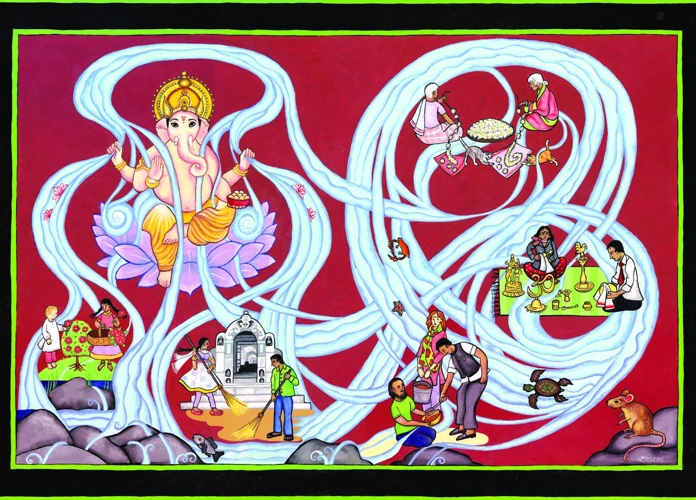Exploring the Fascinating Concept of Karma in Hindu Mythology
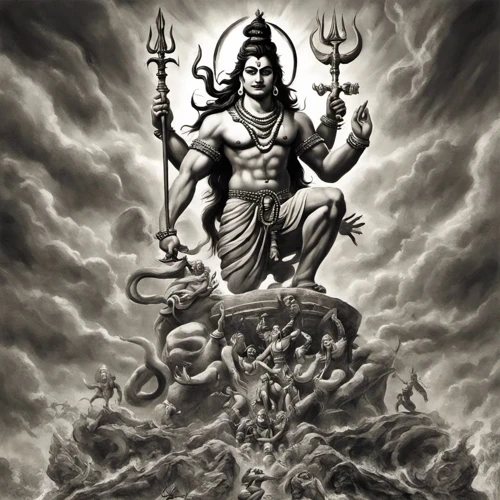
Have you ever wondered about the intricate workings of the universe and how our actions shape our destiny? Look no further than the ancient wisdom of Hindu mythology, where the concept of karma takes center stage. Karma, a fundamental principle in Hindu philosophy, delves into the realm of cause and effect, accountability, and the interconnectedness of all beings. In this article, we will unravel the profound meaning of karma and how it is intricately woven into the fabric of Hindu mythology. Prepare to embark on a journey of self-discovery, as we delve into the various aspects of karma, its role in Hindu texts, the different types of karma, and its significance in our everyday lives. Join us as we explore the depths of this profound concept that has captivated the minds of seekers for centuries.
The Meaning of Karma

Karma, derived from the Sanskrit word “kri” meaning action or deed, is a central concept in Hindu mythology. It is a belief that every action we perform, whether physical, verbal, or mental, has consequences that directly impact our future experiences. Karma is the universal law of cause and effect, holding individuals accountable for their thoughts, words, and actions. The concept of Karma emphasizes that every action sets forth a chain reaction, creating a ripple effect that determines one’s future circumstances. This principle highlights the interconnectedness of all beings and the responsibility each individual holds for their own destiny.
To truly understand the meaning of karma, it is crucial to grasp its significance in relation to Hindu mythology. Karma is not limited to the current lifetime but extends across multiple lifetimes, creating a continuous cycle of birth, death, and rebirth. It is believed that the consequences of past actions manifest in future lives, shaping the conditions and circumstances one is born into. The concept of karma thus serves as a moral compass, encouraging individuals to lead virtuous lives and make positive choices in order to attain spiritual growth and liberation.
In Hindu mythology, karma is intricately woven into various scriptures and ancient texts, such as the Vedas, Upanishads, Bhagavad Gita, and Puranas. These sacred texts elucidate the philosophical and spiritual aspects of karma and its role in the cosmic order. The Bhagavad Gita, for instance, explores the idea of selfless action and the importance of performing one’s duty without attachment to the results. It teaches that individuals should act in accordance with their dharma (duty) and ultimately detach themselves from the fruits of their actions.
The significance of karma can also be observed in the portrayal of deities in Hindu mythology. Deities such as Brahma, Vishnu, and Shiva exemplify the concept of karma through their actions and roles in cosmic balance. Brahma represents creation, Vishnu symbolizes preservation, and Shiva signifies destruction and transformation. These deities exemplify the consequences of different actions and their impact on the cycle of life.
The meaning of karma in Hindu mythology goes beyond a mere understanding of cause and effect. It delves into the fundamental principles of cosmic balance, individual responsibility, and the pursuit of spiritual enlightenment. By adhering to the principles of karma, individuals strive to lead virtuous lives, fulfill their duties, and ultimately attain liberation from the cycle of birth and death. To further explore the depths of Hindu mythology and its influence on karma, you can delve into the epic stories of Ramayana and Mahabharata, or learn about the role of mythology in Hindu rituals and festivals.
The Law of Cause and Effect
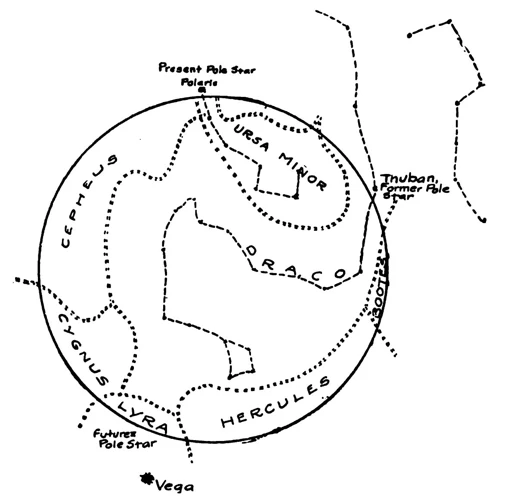
The Law of Cause and Effect is at the core of the concept of karma in Hindu mythology. It states that every action we take, whether physical, verbal, or mental, generates a corresponding outcome or consequence. This fundamental law in Hindu philosophy asserts that there is no such thing as a random occurrence or an isolated event. Instead, it emphasizes the interconnectedness of all phenomena and the idea that every action carries an inherent energy or force that will eventually manifest in a result.
To understand the Law of Cause and Effect, one can visualize it as a chain reaction. Each action serves as the cause, setting off a series of events that eventually lead to an effect or outcome. This law operates not only in the physical realm but also extends to the realm of thoughts and intentions. In Hindu mythology, it is believed that even our thoughts and intentions carry energy and can influence the course of our lives.
The Law of Cause and Effect is deeply rooted in the concept of karma. Karma, in Hindu mythology, refers to the accumulation of our past actions and their corresponding effects. It suggests that our present circumstances are shaped by the cumulative impact of our actions from past lives. This principle emphasizes the idea that we are responsible for our own fate and that we have the power to shape our future through our choices and actions.
The Law of Cause and Effect is intricately tied to the concept of dharma, which refers to one’s moral and ethical duties. It teaches that every action has consequences, whether positive or negative, and it is our duty to act in alignment with righteousness and virtue. By acting in accordance with dharma and performing our duties without attachment to the results, we can ensure that the causes we set in motion will lead to positive outcomes.
This law can be seen reflected in Hindu mythology through the stories of epic tales like the Ramayana and Mahabharata. These narratives are filled with characters who face the consequences of their actions, whether they are virtuous or malevolent. The heroes and heroines of these stories make choices that set the course of their lives and determine their eventual destiny.
In the context of Hindu deities, the Law of Cause and Effect can be observed through the roles and actions of Brahma, Vishnu, and Shiva. Brahma, as the creator, sets forth the causes that lead to the creation of the universe. Vishnu, as the preserver, ensures the continuation of the cosmic order by maintaining balance and harmony. Shiva, as the destroyer, brings about transformation and renewal through the cessation of existing causes.
Understanding the Law of Cause and Effect is essential in comprehending the concept of karma in Hindu mythology. It reminds us of the power and responsibility we hold for our own actions and the impact they have on our lives and the lives of those around us. By recognizing the interplay of cause and effect, we can strive to make choices that lead to positive outcomes and align ourselves with the divine principles of Hindu mythology. To explore more about the fascinating world of Hindu mythology and its relevance in rituals and festivals, you can learn about the role of mythology in Hindu rituals and festivals.
The Role of Karma in Hindu Mythology
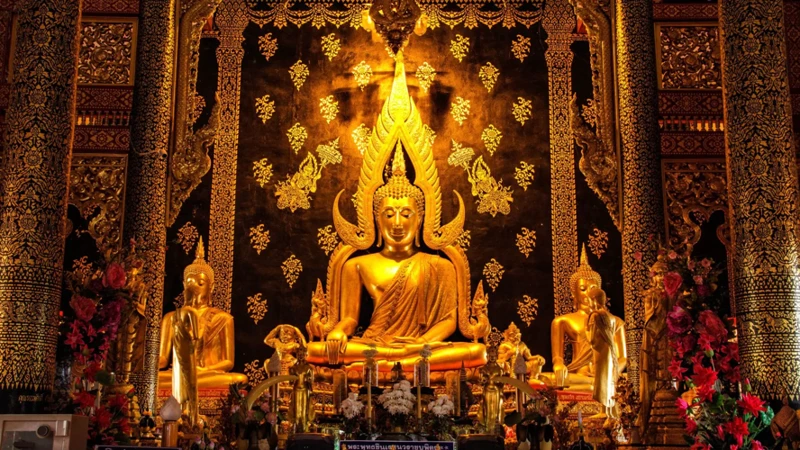
Karma plays a significant role in Hindu mythology, permeating every aspect of the cosmic order and shaping the destiny of beings. It serves as a moral force that governs the actions and consequences of individuals, instilling a sense of accountability and responsibility. This concept is intricately woven into ancient Hindu scriptures, such as the Vedas, Upanishads, Bhagavad Gita, and Puranas, which provide profound insights into the workings of karma. The epic stories of Ramayana and Mahabharata also exemplify the interplay of karma, as the characters navigate through the consequences of their actions and face the repercussions of their choices. The gods and deities in Hindu mythology, including Brahma, Vishnu, and Shiva, further reflect the role of karma through their actions and influence on the cycle of life. Whether in the context of rituals, festivals, or the worship of deities, karma remains a fundamental principle guiding the lives of individuals and their quest for spiritual growth and liberation. For a deeper exploration of these themes, you can delve into the epic Hindu mythology of Ramayana and Mahabharata, learn about the role of mythology in Hindu rituals and festivals, or discover the significant deities Brahma, Vishnu, and Shiva.
Karma in the Vedas and Upanishads
The concept of karma finds its roots in the ancient scriptures of Hindu mythology, such as the Vedas and Upanishads. These sacred texts provide deep insights into the nature of karma and its significance in shaping human destiny. In the Vedas, which are among the oldest religious texts in the world, karma is predominantly seen as a ritualistic aspect rather than a moral concept. It emphasizes the performance of Vedic rituals and sacrifices as a means to attain desired outcomes and blessings from the divine.
In the Upanishads, however, karma takes on a more philosophical and spiritual dimension. The Upanishads explore the nature of the individual self, known as the Atman, and its relationship with the ultimate reality, Brahman. It is in these texts that the concept of karma undergoes a transformation from a purely ritualistic act to a moral and ethical principle that governs human actions.
The Upanishads introduce the idea of karma as a mechanism through which individuals accumulate the consequences of their actions, both good and bad. It emphasizes the idea of cause and effect, stating that every action performed by an individual carries energy that contributes to their future experiences. The Upanishads also establish a connection between karma and the concept of reincarnation, asserting that the accumulated karma from past lives determines the circumstances of one’s current life and future rebirths.
The Upanishads highlight the significance of self-realization and liberation, known as moksha, in attaining freedom from the cycle of birth and death. They state that by understanding the true nature of oneself and realizing the interplay of karma, individuals can transcend the limitations of the material world and achieve spiritual enlightenment.
The Vedas and Upanishads lay the foundation for the concept of karma in Hindu mythology. While the Vedas primarily focus on ritualistic aspects of karma, the Upanishads delve deeper into the philosophical and spiritual dimensions, exploring the relationship between karma, the individual self, and ultimate liberation. To explore more about the epic stories of Ramayana and Mahabharata, the role of mythology in Hindu rituals and festivals, or the influence of deities like Brahma, Vishnu, and Shiva, you can follow the relevant links.
Karma in the Bhagavad Gita
In the Bhagavad Gita, one of the most revered texts in Hindu mythology, the concept of karma takes center stage. The Bhagavad Gita, a conversation between Lord Krishna and the warrior Arjuna on the battlefield of Kurukshetra, delves deep into the nature of life, duty, and the path to spiritual enlightenment. Karma is a key theme explored throughout the text, offering profound insights into the significance of selfless action and the consequences of one’s deeds.
Lord Krishna teaches Arjuna that performing one’s duty, or dharma, without attachment to the results is essential to living a life governed by karma. He emphasizes the importance of acting selflessly and without ego, focusing on the intention and effort put into each action rather than being driven by the desire for personal gain. This notion of detaching oneself from the fruits of their actions is a fundamental aspect of karma in the Bhagavad Gita.
The Bhagavad Gita highlights the interconnectedness of all beings and the role of karma in shaping individual destinies. Lord Krishna explains to Arjuna that every action carries consequences, and that individuals are responsible for their own karma. He elucidates that positive actions and righteous behavior lead to positive outcomes, while negative actions result in negative outcomes. This reinforces the idea that individuals must act with integrity and bear the accountability for their choices.
Another significant aspect of karma in the Bhagavad Gita is the concept of rebirth and the continuation of the soul’s journey across lifetimes. Lord Krishna describes how the soul is eternal and goes through a continuous cycle of birth and death. He explains that the actions performed in one lifetime have repercussions in future lives, determining the circumstances and experiences individuals encounter. Leading a life guided by righteous actions and moral values is crucial for spiritual growth and eventual liberation from the cycle of birth and death.
The teachings of karma in the Bhagavad Gita have had a profound impact on Hindu philosophy and the understanding of one’s moral and spiritual responsibilities. It encourages individuals to lead a life of selflessness, integrity, and purpose, acting in accordance with their dharma and accepting the consequences of their actions. By studying the Bhagavad Gita, one can gain valuable insights into the complexities of karma and its role in shaping the path to enlightenment.
To further explore the wisdom of Hindu mythology and its impact on karma, delve into the epic stories of Ramayana and Mahabharata, or gain a deeper understanding of the role of mythology in Hindu rituals and festivals.
Karma in the Puranas
Karma holds a significant place in the Puranas, a collection of ancient Hindu texts that delve into various mythological stories and teachings. These scriptures provide profound insights into the concepts of karma and its implications in the lives of individuals. The Puranas narrate fascinating tales of gods, goddesses, sages, and mythical beings, illustrating the consequences of their actions and the role of karma in shaping their destinies.
In the Puranas, karma is portrayed as an immutable law that governs all beings, including gods and mortals. The stories highlight how karma influences the lives of both virtuous and sinful individuals, emphasizing that no action goes unnoticed or unrewarded. For instance, the story of King Harishchandra showcases the consequences of truthfulness and righteousness, as the king’s unwavering commitment to dharma and honesty leads to his eventual redemption and liberation.
The Puranas illustrate the idea of karma as a cycle of birth and rebirth, known as samsara. Individuals in these myths undergo various lifetimes, and their actions in each lifetime determine the outcomes and experiences of their subsequent lives. The Puranas vividly describe how karma determines the form, circumstances, and fortunes of beings in their rebirths, highlighting the importance of ethical behavior and righteous actions.
Karma in the Puranas is intricately linked to divine intervention and justice. The deities’ actions reflect the consequences of their karma, showcasing how their virtuous deeds result in blessings and boons, while their transgressions lead to hardships and tribulations. For example, the story of Lord Indra, the king of gods, depicts how his arrogance and misuse of power result in the loss of his celestial position. Indra’s subsequent redemption and restoration of his status illustrate the transformative power of karma and the potential for personal growth and enlightenment.
The Puranas also emphasize the role of karma in shaping relationships and familial ties. The stories illustrate how actions performed in past lives create karmic bonds between individuals, leading to joyful reunions, conflicts, or even tragic outcomes in subsequent lifetimes. These tales serve as moral lessons, emphasizing the importance of cultivating positive relationships and resolving past karmic debts.
To delve further into the captivating stories and teachings of the Puranas, one can explore the epic Hindu mythologies of Ramayana and Mahabharata, which are intricately woven within these ancient texts. By understanding the role of karma in the Puranas, individuals gain valuable insights into the consequences of their own actions and the potential for growth and spiritual evolution.
[Link to Epic Hindu Mythology: Ramayana and Mahabharata](/epic-hindu-mythology-ramayana-mahabharata/)
Types of Karma

Karma is not a one-size-fits-all concept, but rather a multifaceted principle that encompasses various types of karma. These different types shed light on the nuances of cause and effect and provide deeper insights into the workings of the universe. Sanchita Karma refers to the accumulated karma from past actions that still influence our present and future experiences. It represents the storehouse of karma and acts as a reservoir from which experiences are drawn. Prarabdha Karma is the portion of sanchita karma that has ripened and is currently being experienced in the present life. It is the karma that determines an individual’s current circumstances and conditions. Kriyamana Karma encompasses the karma that is currently being created through our actions in the present moment. It is the karma that we are actively generating through our thoughts, words, and deeds. Finally, Agami Karma refers to the future karma that has not yet manifested but will affect our future lives. These different types of karma highlight the intricate nature of cause and effect, showing how our past actions shape our present and future experiences. To understand karma more comprehensively, it is essential to explore the role of mythology in Hindu rituals and festivals or delve into the significance of deities such as Brahma, Vishnu, and Shiva in Hindu mythology.
Sanchita Karma
Sanchita Karma is one of the four types of karma recognized in Hindu mythology. Sanchita karma refers to the accumulated karma from all past actions of an individual across multiple lifetimes. It is the sum total of all actions, both good and bad, that an individual has performed and has yet to experience the consequences of. Sanchita karma is like a storehouse of karmic energy, comprising the seeds of future experiences that will manifest in future lifetimes.
The term “Sanchita” translates to “gathered” or “collected,” highlighting the idea that each action we perform adds to this storehouse. These accumulated actions shape our future circumstances and determine the opportunities, challenges, and experiences we will encounter in subsequent lives. Sanchita karma is believed to have a powerful influence on the trajectory of an individual’s journey through the cycle of birth, death, and rebirth.
To better understand the concept of Sanchita karma, it is important to recognize that it is intimately linked to the principle of reincarnation. Hindu mythology teaches that death is not the end but rather a transition to a new life. Each new life is a continuation of the karmic journey, and the effects of Sanchita karma manifest in the circumstances we are born into.
Sanchita karma can be compared to a bank account where our actions deposit either positive or negative karma. The balance of this account determines the future experiences we will face. However, unlike a regular bank account, Sanchita karma cannot be easily withdrawn or manipulated. It is an accumulation that can only be mitigated or exhausted through the process of spiritual growth, selfless actions, and the pursuit of liberation.
In the context of Hindu mythology, Sanchita karma serves as a reminder of the importance of conscious and mindful living. It emphasizes the need for individuals to be aware of their actions and the long-term consequences they may have. By recognizing the influence of Sanchita karma, individuals are encouraged to make choices that promote positive growth, compassion, and spiritual evolution.
To explore further, you can learn about the role of mythology in Hindu rituals and festivals, or delve into the significance of deities like Brahma, Vishnu, and Shiva in Hindu mythology. These aspects of Hindu culture expand on the interconnectedness between karma, deities, and the practices followed by millions of people.
Prarabdha Karma
Prarabdha Karma refers to the portion of one’s accumulated karma that is ripe for experiencing in the present lifetime. It is the karma that has already begun to bear fruit and unfolds as the circumstances and experiences one encounters in their current life. Prarabdha Karma is considered to be predestined and uncontrollable, as it is determined by the actions performed in past lives. It is believed that each individual is born into a specific set of circumstances and faces certain challenges and opportunities due to their Prarabdha Karma.
This type of karma is often compared to an arrow that has already been released from the bow and is on its way to hitting its target. Once the Prarabdha Karma has begun to manifest, its consequences cannot be avoided or changed. However, individuals have the power to decide how they respond to these experiences, thereby influencing their future karma.
To understand Prarabdha Karma, consider the analogy of a person who has planted the seeds of actions in previous lives. These seeds grow into trees, and the fruits of those trees are experienced in the present life. The circumstances, relationships, talents, and challenges one encounters are all a result of this Prarabdha Karma. It is important to note that Prarabdha Karma is not set in stone, as an individual has the power to shape their future karma through their current actions.
In Hindu mythology, the concept of Prarabdha Karma is exemplified through various stories and characters. For example, the epic Mahabharata portrays the characters facing the consequences of their past actions. The Pandavas, despite being righteous and virtuous, face numerous trials and tribulations due to their Prarabdha Karma. Similarly, the character of Karna is bound by his Prarabdha Karma, which ultimately leads to his tragic fate in the battle of Kurukshetra.
Understanding Prarabdha Karma emphasizes the idea that individuals are not solely victims of their circumstances but active participants in shaping their destiny. While Prarabdha Karma sets the stage for one’s experiences in the current lifetime, it is up to the individual to respond and act in ways that can influence their future karma. By practicing mindfulness, making virtuous choices, and cultivating positive intentions, individuals can work towards creating a positive future and ultimately break free from the cycle of karma.
To learn more about the role of karma in Hindu mythology, you can explore the significance of karma in Hindu rituals and festivals, or delve deeper into the attributes and symbolism of deities such as Brahma, Vishnu, and Shiva.
Kriyamana Karma
Kriyamana Karma, also known as Agama Karma or Current Karma, is a type of karma that refers to the actions and deeds performed in the present lifetime. It encompasses the choices we make and the consequences we face as a result of our current actions. Kriyamana Karma is dynamic and continuously accumulates based on our thoughts, intentions, and actions throughout our lives.
This type of karma is considered to be within our control, as we have the ability to make conscious decisions and shape the outcomes of our actions. The choices we make in the present directly influence our future experiences and create the foundation for our next set of circumstances in subsequent lives.
Kriyamana Karma operates on the principle of cause and effect, where actions generate corresponding reactions. Every action, regardless of its scale, has its own consequences, and individuals are responsible for the outcomes of their choices. Positive actions sow the seeds of future happiness and success, while negative actions result in suffering and hardships.
In Hindu mythology, the concept of Kriyamana Karma emphasizes the importance of making righteous choices and acting in accordance with dharma (duty) and moral values. It encourages individuals to be mindful of their actions and consider the impact on themselves and others. By practicing good actions and cultivating positive intentions, individuals can accumulate positive karma and shape a brighter future.
Understanding Kriyamana Karma plays a significant role in Hindu rituals and festivals, where individuals seek to purify their current karma and pave the way for a more auspicious life ahead. Rituals such as yagnas, havans, and prayers are performed with the intention of seeking forgiveness for past mistakes and generating positive energy for the present and future. These rituals serve as a means to cleanse oneself from negative karma and create a favorable environment for spiritual growth and well-being.
In the Hindu pantheon, the deities Brahma, Vishnu, and Shiva are seen as the embodiments of different aspects of Kriyamana Karma. Brahma represents the power of creation and the choices we make for our future, while Vishnu symbolizes the preservation of righteous actions and their outcomes. Shiva, on the other hand, represents the transformative power of Kriyamana Karma, as he destroys negative karma and paves the way for new beginnings.
By understanding and aligning ourselves with the principles of Kriyamana Karma, we can make conscious choices in our present lives and influence the course of our future experiences. Taking responsibility for our actions and striving to create positive karma enables us to navigate through life with purpose, growth, and spiritual evolution. To delve deeper into the relationship between karma and Hindu rituals or learn more about the deities Brahma, Vishnu, and Shiva, you can explore the role of mythology in Hindu rituals and festivals or discover the significance of these deities in Hindu mythology.
Agami Karma
Agami Karma, also known as Praychitta Karma or Future Karma, refers to the actions and intentions performed in the present lifetime that will bear fruit in future lives. It is the accumulation of new actions and their consequences that add to an individual’s karma bank. The term “agami” translates to “future,” signifying that the effects of these actions may not be experienced immediately but will manifest in subsequent births.
Agami Karma takes into account the choices we make and the intentions behind our actions in the present moment. It recognizes that our current actions shape not only our future circumstances, but also our future predispositions and tendencies. Positive actions and intentions lead to the accumulation of positive karma, while negative actions and intentions lead to the accumulation of negative karma.
In the cycle of birth, death, and rebirth, Agami Karma plays a significant role in determining the trajectory of an individual’s future lives. It underscores the belief that individuals have the power to shape their destiny through their thoughts, choices, and actions.
To mitigate the effects of negative Agami Karma, Hindu mythology and rituals provide various practices and rituals. These rituals aim to purify the soul, seek forgiveness, and cleanse oneself from past wrongdoings. They serve as a way to neutralize or alleviate the negative consequences of Agami Karma and steer individuals towards a path of spiritual growth and redemption.
Agami Karma is intricately connected to the concept of reincarnation and the cycle of samsara. The choices and actions made in one lifetime carry forward, influencing the circumstances and experiences of future lives. Thus, individuals are urged to cultivate virtuous behavior, practice selflessness, and lead a righteous life to ensure positive Agami Karma and a favorable future existence.
While Agami Karma may seem daunting, it also serves as a source of hope and motivation. It reminds individuals that they have the power to shape their future through their current actions and intentions. By making conscious choices and acting with kindness, compassion, and integrity in the present, one can sow the seeds of positivity and pave the way for a more favorable future.
To further explore the profound connection between karma and Hindu rituals and festivals, you can learn about the role of mythology in Hindu rituals and festivals. Additionally, gaining insight into the symbolism and significance of Hindu deities like Brahma, Vishnu, and Shiva can provide a deeper understanding of the interconnectedness of karma and the divine forces in Hindu mythology.
Karma and Reincarnation
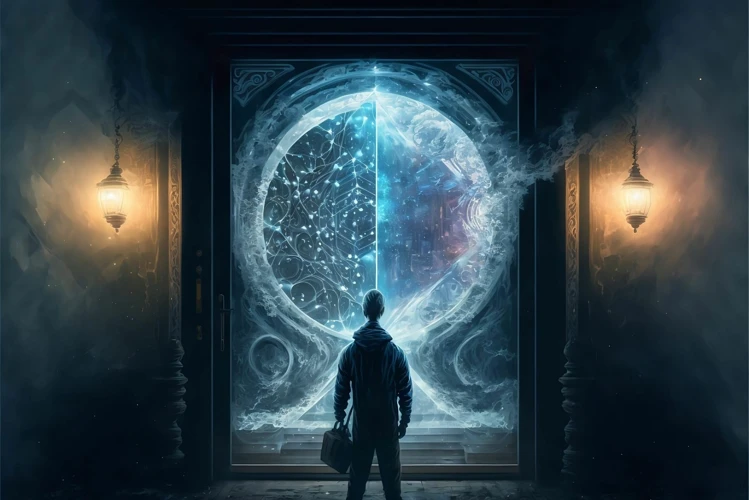
In Hindu mythology, the concept of karma is closely intertwined with the belief in reincarnation, also known as samsara. According to this belief, the soul is eternal and undergoes a cycle of birth, death, and rebirth. The actions and choices made in each lifetime determine the quality of the next incarnation. Reincarnation allows individuals to continue their journey of spiritual evolution and work towards ultimate enlightenment.
The law of karma dictates that the consequences of our thoughts, words, and deeds in one life carry over to subsequent lives. Positive actions result in positive outcomes, while negative actions lead to negative consequences. This cycle of cause and effect is not limited to a single lifetime but extends across multiple rebirths. The circumstances one is born into, such as social status, health, and environment, are considered to be influenced by past karmic actions.
Reincarnation offers individuals the opportunity to rectify their past mistakes, learn valuable lessons, and make progress on their spiritual path. Each lifetime presents unique challenges and opportunities for growth. Through the experiences encountered in different incarnations, individuals have the chance to evolve spiritually and attain liberation from the cycle of samsara. This liberation, known as moksha, is the ultimate goal in Hindu philosophy.
The belief in karma and reincarnation provides a framework for understanding the concept of divine justice. It explains why some individuals seem to be born into fortunate circumstances while others face adversity. Hindu mythology teaches that these disparities are a result of one’s individual karma, accumulated over countless lifetimes. It emphasizes personal accountability and encourages individuals to take responsibility for their actions, knowing that their choices will shape their future incarnations.
To gain a deeper understanding of karma and reincarnation in Hindu mythology, it is essential to explore the rich tapestry of myths, rituals, and festivals. These cultural practices offer insights into the values and beliefs associated with karma and provide opportunities for individuals to engage in activities that positively influence their karmic journey. For a deeper understanding of the deities who embody the notions of karma and reincarnation, you can delve into the significance of Brahma, Vishnu, and Shiva.
By recognizing the interconnectedness of karma and reincarnation, individuals can strive for self-improvement, moral conduct, and spiritual growth. The understanding that our actions have consequences not only in the present but in future lives can inspire individuals to make conscious choices that promote harmony, compassion, and the well-being of all beings. Through a continuous process of learning, evolving, and transcending, individuals can unlock the ultimate liberation of moksha and break free from the cycle of samsara.
Karma and Dharma
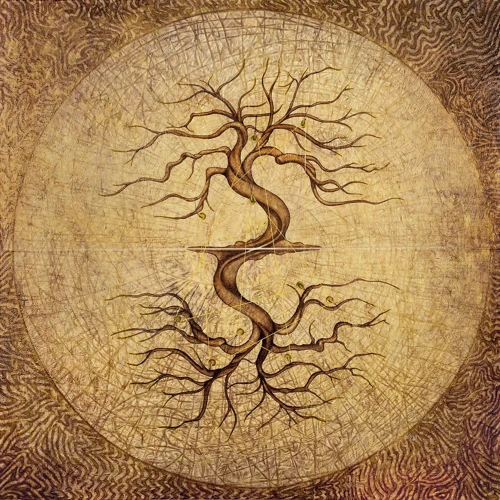
In Hindu mythology, the concepts of karma and dharma are deeply intertwined and hold significant importance in guiding one’s actions and moral obligations. Dharma, often translated as duty or righteousness, refers to the inherent nature and purpose of an individual. It is the moral and ethical responsibilities one must fulfill in accordance with their position in society, as well as their personal and spiritual growth. Dharma provides a framework for living a virtuous life and making choices that align with one’s true nature.
Karma, on the other hand, is the law of cause and effect that governs the consequences of one’s actions. It is through karma that individuals reap the fruits of their deeds, both in the present life and future lifetimes. Understanding the relationship between karma and dharma is crucial in Hindu mythology as it emphasizes the importance of fulfilling one’s duties and responsibilities without attachment to the outcome.
According to Hindu philosophy, every individual has a unique dharma based on their caste, gender, age, and societal roles. For example, a person belonging to the Brahmin caste has the dharma of acquiring knowledge and performing religious rites, while a Kshatriya’s dharma revolves around protecting society and upholding justice. Similarly, each individual has personal dharma, which includes responsibilities towards family, friends, and oneself.
By adhering to dharma and performing actions selflessly and in accordance with one’s duties, individuals accumulate positive karma. This positive karma leads to spiritual growth, inner harmony, and ultimately liberation from the cycle of birth and death. Conversely, neglecting or deviating from one’s dharma can result in negative karma, leading to suffering and setbacks in the spiritual journey.
The relationship between karma and dharma is beautifully exemplified in the epic tale of the Mahabharata, where the Pandavas face numerous challenges and moral dilemmas while upholding their dharma. Despite facing adversity and making difficult sacrifices, they remain steadfast in their duty, thereby accumulating positive karma. This narrative serves as a powerful reminder of the significance of dharma and its impact on one’s karmic path.
In the grand tapestry of Hindu mythology, the concepts of karma and dharma serve as guiding principles for individuals seeking spiritual enlightenment and personal growth. By understanding and embodying their dharma, individuals strive to live a life of righteousness, integrity, and selflessness. Karma acts as a constant reminder of the consequences of one’s actions, reinforcing the importance of making choices that align with one’s dharma.
To further explore the interplay of karma and dharma in Hindu mythology, you may also be interested in discovering the roles of deities such as Brahma, Vishnu, and Shiva, or exploring the influence of mythology in Hindu rituals and festivals.
The Power of Intentions
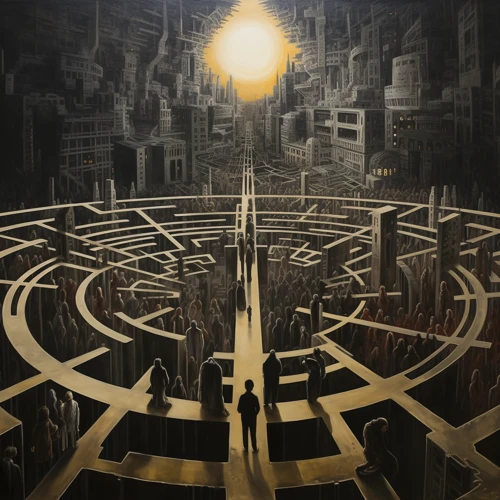
The power of intentions plays a significant role in understanding the concept of karma in Hindu mythology. According to Hindu philosophy, intentions, or the thoughts and desires behind our actions, are crucial in determining the nature and consequences of our karma. It is believed that not only the action itself but also the intention behind it holds immense power and shapes the karmic outcome.
In Hindu mythology, the power of intentions is exemplified through various stories and teachings. One such example can be found in the epic mythological tale of the Mahabharata, specifically in the character of Krishna. Krishna, an incarnation of Lord Vishnu, is revered as a divine guide and teacher who imparts wisdom to the protagonist Arjuna before the great Kurukshetra war. In the Bhagavad Gita, Krishna emphasizes the importance of pure intentions in performing one’s duty and encourages Arjuna to act selflessly without attachment to the results.
The concept of intentions can be understood in the context of Hindu rituals and festivals as well. Rituals and ceremonies in Hinduism are not merely superficial acts but are performed with specific intentions to invoke divine grace, seek blessings, and express gratitude. For instance, during the festival of Diwali, people light lamps and offer prayers to deities with the intention of dispelling darkness, inviting prosperity, and celebrating the victory of good over evil.
Understanding the power of intentions allows individuals to cultivate mindfulness and awareness of their thoughts and desires. Hindu mythology teaches that consciously aligning our intentions with righteousness, selflessness, and compassion can lead to positive karmic outcomes. On the other hand, harboring negative intentions such as greed, hatred, or harm towards others can result in negative karmic consequences.
It is essential to note that while intentions are significant, they cannot solely determine the outcome of karma. Actions, words, and their consequences also play a vital role. However, intentions shape the moral compass and provide a guiding force in decision-making.
In Hindu mythology, the deities Brahma, Vishnu, and Shiva further exemplify the power of intentions. Brahma represents the power of creation, Vishnu symbolizes the power of preservation, and Shiva embodies the power of destruction and transformation. These symbolic representations highlight how the intentions behind their actions contribute to maintaining cosmic balance and harmony.
The power of intentions in Hindu mythology emphasizes the significance of cultivating positive, noble, and selfless thoughts and desires. It sheds light on the understanding that our intentions, combined with our actions, shape our karma and ultimately contribute to our spiritual growth and evolution. To explore more about the role of mythology in Hindu rituals and festivals or learn about the deities Brahma, Vishnu, and Shiva, you can refer to the relevant articles.
Karma in Practice
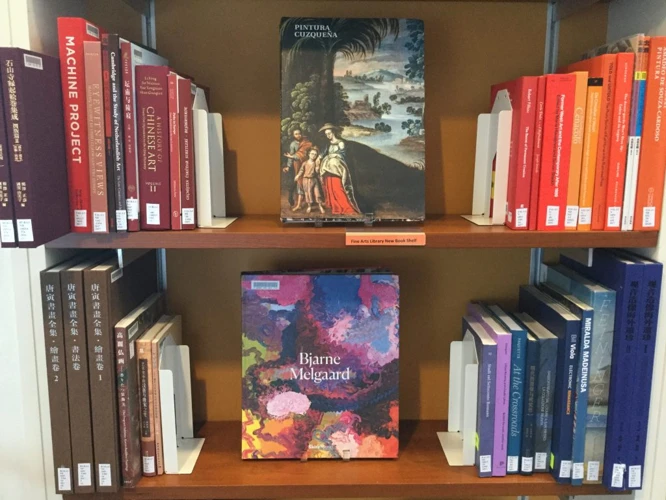
In Hindu mythology, karma is not just a concept or belief system, but a way of life. It has practical implications that guide individuals in their everyday actions and decisions. Understanding karma allows individuals to take responsibility for their actions and strive for positive outcomes. Here are some ways in which karma is put into practice in Hinduism:
1. Intentional Actions: In practicing karma, individuals are encouraged to be mindful of their intentions behind their actions. It is believed that the purity of intention determines the karmic consequences. Performing actions with selflessness, compassion, and a desire to contribute positively to the world is emphasized.
2. Awareness of Consequences: Practitioners of karma understand the importance of considering the potential consequences of their actions. They strive to make choices that align with their moral values, knowing that their actions will have far-reaching effects on themselves and others.
3. Self-Reflection: Taking time for introspection and self-reflection is a crucial aspect of practicing karma. It involves being honest with oneself, acknowledging past mistakes, and making efforts to rectify and grow from them.
4. Giving and Service: Another important aspect of karma in practice is the act of giving and serving others selflessly. By helping those in need and contributing to the welfare of society, individuals generate positive karma for themselves and uplift the lives of others.
5. Moral and Ethical Living: Following the principles of dharma, individuals strive to live morally and ethically. This involves treating others with respect, practicing honesty, and upholding virtues such as truth, non-violence, and integrity.
6. Karma Yoga: In Hindu philosophy, Karma Yoga is the path of selfless action. It involves engaging in one’s duties and responsibilities without attachment to the results. By performing actions with dedication and surrendering the outcomes to a higher power, individuals can transcend the ego and attain spiritual growth.
7. Impact on Reincarnation: Practicing karma with awareness of its impact on future lives is also significant. Believing in the cycle of reincarnation, individuals aim to accumulate positive karma to improve their future birth and progress towards spiritual liberation.
Karma is deeply intertwined in various aspects of Hinduism, such as rituals and festivals. Rituals and ceremonies are performed with the intention of purifying one’s karma and seeking blessings for oneself and others. Festivals provide opportunities for individuals to reflect on their actions, seek forgiveness, and make positive changes in their lives.
By embodying these practices, individuals can cultivate a consciousness that aligns with the principles of karma. It helps in fostering personal growth, creating a harmonious society, and ultimately progressing on the path towards self-realization. To delve deeper into the role of karma within Hindu rituals and festivals, or to understand the connection between karma and deities like Brahma, Vishnu, and Shiva, you can explore the relevant articles on Hindu rituals and festivals or learn more about these prominent deities Brahma, Vishnu, and Shiva.
Karma and Moksha
Karma and Moksha are intrinsically linked concepts in Hindu mythology. While karma represents the cycle of cause and effect and the consequences of one’s actions, Moksha symbolizes liberation from this cycle and the ultimate goal of spiritual attainment. Moksha is considered the highest form of liberation, where one breaks free from the cycle of birth, death, and rebirth and achieves union with the divine.
Here are some key points to understand the relationship between Karma and Moksha:
1. Karma as the Path to Moksha: Karma plays a vital role in the pursuit of Moksha. It is believed that one’s actions, thoughts, and intentions shape their karma, and this accumulated karma determines their future experiences and the subsequent cycles of rebirth. By understanding and aligning one’s actions with dharma (moral and cosmic order), individuals can purify their karma and progress towards Moksha.
2. Liberation from Karma: Moksha represents freedom from the cycle of Karma. It is the state where one transcends the limitations of the physical body and attains union with the divine or achieves self-realization. This liberation from karma is seen as the ultimate goal of human life in Hindu mythology.
3. Breaking the Cycle: Moksha can only be attained by breaking the cycle of birth, death, and rebirth. This can be achieved by fulfilling one’s karmic obligations, learning the lessons presented by each life, and ultimately transcending the bondage of karma. It requires self-realization and the dissolution of ego to merge with the eternal and infinite.
4. The Role of Selfless Actions: Selfless actions, also known as Nishkama Karma, are considered essential in the pursuit of Moksha. The Bhagavad Gita emphasizes the importance of performing one’s duties without attachment to the results. By engaging in selfless actions and surrendering the fruits of one’s labor to a higher power, individuals can detach themselves from the karmic cycle and move closer to Moksha.
5. The Connection to Spiritual Practices: The path to Moksha often involves spiritual practices such as meditation, yoga, and self-reflection. These practices help individuals cultivate self-awareness, purify their thoughts and intentions, and transcend the limitations of karma. They provide tools for understanding the true nature of reality and realizing the divinity within.
Karma and Moksha are intertwined concepts in Hindu mythology. Karma represents the cycle of cause and effect, while Moksha signifies liberation from this cycle and the ultimate goal of spiritual attainment. By understanding the profound connection between one’s actions and their consequences, individuals can purify their karma, break free from the cycle of rebirth, and progress towards Moksha – the state of ultimate liberation.
Conclusion
In conclusion, the concept of karma in Hindu mythology is a profound and intricate philosophy that encompasses the principles of cause and effect, accountability, and interconnectedness. It emphasizes the idea that every action we perform, whether positive or negative, has consequences that shape our future experiences. Karma extends beyond a single lifetime, manifesting in future lives and creating a continuous cycle of birth, death, and rebirth.
Throughout Hindu texts such as the Vedas, Upanishads, Bhagavad Gita, and Puranas, the significance of karma is explored and exemplified. These scriptures provide guidance on leading a virtuous life, fulfilling one’s duty, and detaching oneself from the outcomes of actions. The portrayal of deities in Hindu mythology also reflects the principles of karma, highlighting the consequences of different actions and their impact on the cosmic order.
Understanding the meaning of karma in Hindu mythology offers valuable insights into the nature of existence and the interconnectedness of all beings. It encourages individuals to take responsibility for their actions, live with integrity, and strive for spiritual growth. By embodying the principles of karma, one can aim for liberation from the cycle of birth and death, seeking ultimate enlightenment and union with the divine.
Exploring the depths of karma in Hindu mythology allows us to contemplate our own actions and their consequences. It invites us to reflect on the choices we make, the intentions we hold, and the impact they have on ourselves and the world around us. By understanding karma, one can cultivate awareness, compassion, and a sense of personal accountability in their journey towards self-realization.
In essence, karma serves as a guiding principle in Hindu mythology, reminding us of the intricate web of cause and effect that governs our lives. It urges us to approach each action and interaction with mindfulness, understanding that our choices today shape our destiny tomorrow. The profound teachings of karma continue to inspire seekers of wisdom and provide a framework for leading a purposeful and virtuous life. As we delve deeper into the rich tapestry of Hindu mythology, the concept of karma serves as a timeless reminder of our interconnectedness and the power we hold in shaping our own spiritual evolution.
Frequently Asked Questions
1. What is the purpose of karma in Hindu mythology?
In Hindu mythology, karma serves as a moral compass and a means to attain spiritual growth. It emphasizes accountability for one’s actions, encourages virtuous behavior, and ultimately aims for liberation from the cycle of birth and death.
2. Does karma only apply to human beings?
No, karma is believed to extend to all living beings, not just humans. Animals, plants, and even celestial beings are believed to be subject to the consequences of their actions.
3. Can karma be carried over from past lives?
Yes, according to Hindu beliefs, karma is not confined to a single lifetime. The consequences of past actions, known as Sanchita karma, can carry over into future lives, shaping an individual’s circumstances and experiences.
4. Is karma predetermined or can it be changed?
Karma can be both predetermined and changeable. Prarabdha karma refers to the portion of accumulated karma that is meant to be experienced in the current lifetime. While this is predetermined, individuals have the power to influence their future karma by making conscious choices and actions in the present.
5. What is the role of intentions in karma?
Intentions play a crucial role in karma. It is believed that the purity and intention behind an action greatly impact its karmic consequences. Actions performed with selflessness, compassion, and righteousness tend to generate positive karma.
6. Can good karma negate the effects of bad karma?
Good karma can certainly mitigate the effects of bad karma to some extent. By accumulating positive karma through virtuous actions, individuals can counterbalance the negative consequences of their past actions and improve their future circumstances.
7. How does karma relate to the concept of dharma?
Karma and dharma are interconnected concepts in Hindu mythology. Dharma refers to one’s duty or righteous path in life. By fulfilling their dharma and acting in alignment with moral and societal obligations, individuals generate positive karma and progress on their spiritual journey.
8. Is karma an individualistic concept or does it have societal implications?
Karma encompasses both individual and societal implications. At an individual level, every action performed by an individual contributes to their personal karma. At a societal level, the collective actions and behaviors of a community or society contribute to its collective karma and shape its destiny.
9. What is the ultimate goal of karma in Hindu mythology?
The ultimate goal of karma is to attain moksha, liberation from the cycle of birth and death. By accumulating positive karma, living a righteous life, and detaching oneself from the fruits of action, individuals aim to break free from the cycle and merge with the divine consciousness.
10. How can one practice karma in daily life?
Practicing karma in daily life involves being mindful of one’s actions and their potential consequences. It means making conscious choices, acting selflessly, and cultivating virtues such as compassion, honesty, and integrity. By living in harmony with the principles of karma, individuals can create positive energy and contribute to their own spiritual growth.

